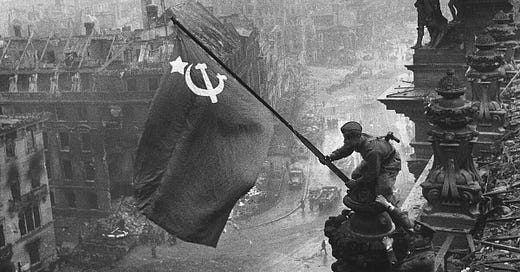Dedicated to Leah W. and her recent suggestions.
“Tell him about the time you got strafed.”
Helga looked at Mary.
“What?”
I looked at Helga.
“What?”
“Tell him about the time you got strafed” Mary repeated, slower.
Helga nodded, hearing this time. (She’s 97.)
The Boston Ferns rustled in the porch breeze.
In typical German fashion, she recounted the story crisply.
“I lived in Berlin in the war. Walking home from the store, I was strafed by an allied aircraft.”
My eyes bugged out.
“How close were the bullets?”
“Oh, very close. I dove to the ground, bloodying both knees. I dropped the milk and bread. The bottle broke.” She pointed to her knees. They looked average, except for the thin line snaking across them. Could it..?
***
Everyone’s got a story. Sometimes it’s a movie. The Japanese lady last week mentioned–in passing–about throwing her siblings into a hole in the ground and then hauling them out again once the bombers were gone. She used one of those laughs that I still don’t know what it means.
When an old lady with a German accent tells me she married an American bandleader, I listen.
***
“We got on a refugee train when the Russians were on the way. The Americans had a bad reputation, too, especially those D Day boys” Helga said. “They stole stuff. We didn’t like them.”
Mary used a hand to close her own mouth, dramatically, her eyes dark as Normandy clouds.
I stared straight at Helga, not sure what to make of this.
“The feeling was mutual.”
For the first time, mentioning Uncle Eddie and his turret gunning B-17 days felt strange. That story always gets a hero’s reception, an ooo and an ahhh, and a shake of the head at the chutzpah and God’s favor.
I wondered what she thought of it. Why even bring it up? I don’t know. It felt like there had to be a time machine hiding somewhere on the manicured grounds, or at least things I don’t understand. (It doesn’t take breaking the rules of physics to stump me.) I stand by him, and always will, but then again, my knees only have bike scars, and I’ve only had to dive to catch fly balls.
Perspective isn’t the same as opinion.
“So it was kind of rough with the Americans. And you married one.”
“Want to hear how I met my husband?”
“Yes!”
“He was the clarinet player in the Air Force band playing in Berlin…oh, must have been about 1948. My friend said ‘Hey, come meet my boyfriend.’ I did, and it was him. We went to see Gone with the Wind, and that was that.’”
“It’s like the Tennessee waltz!” Levity in a moment of war stories.
Mary started singing. “I was dancin’, with my darlin’…”
I joined in. “When an old friend I happened to see…”
“And while they were dancing, my friend stole my sweetheart from me…”
They married, and had a son.
“I’m so glad you got something good out of the horror.”
“He flies planes. He did the…oh, what’s it called, with the benzine for the bombers in the gulf war..”
“A tanker pilot?”
“Yes, that’s it. Then he flew for the Thunderbirds.”
Her son, a fighter pilot.
No use crying over strafed milk.
(Now he runs a commercial route.)
All’s well that ends well.
I looked at these ladies, elderly, but not old in the sense of the past, and told them a related tale of a Japanese soldier avoiding death and fathering his daughter who gave me my first job that eventually lead here, to the porch, and the Boston ferns.
How the sands of time shift, blur, and ease back into the ocean.
Somewhere along the way, ‘round the part of the story with their first date at Gone with the Wind, Mary leaned back with the famous quote.
Frankly, my dear, I don’t give a damn.
It seemed to hang in the air with a new mystery.
I do (give a damn, that is), but it’s still cooking, still gooey and shapeless and too early to point to a moral of the story and say “ah ha, and therefore.”
Bidding them goodbye, I got into my car, checked the DJ gear, and rolled away, boggled.
They sat side by side on the porch, the American and the German, as a delicious breeze wafted through the valley.
The Boston fern rustled again.
I haven’t a clue.



